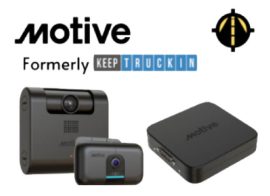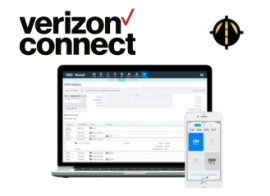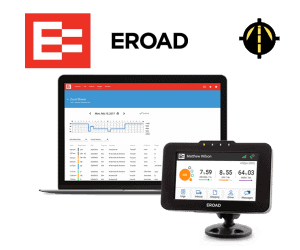Have you ever wondered how fleet managers keep track of numerous vehicles with precision? The secret lies in the power of GPS satellite trackers. These devices are more than just a modern convenience; they’re a pivotal part of efficient fleet management.
Imagine this: You’re managing a fleet of trucks, and one of them gets rerouted due to unexpected road work. With a GPS tracker, you can instantly see the new route and estimated arrival time.
This isn’t just about keeping an eye on your vehicles; it’s about optimizing your operations and staying ahead of the game.
Understanding GPS Satellite Trackers

At its core, a GPS tracking device is like a lighthouse in the ocean of data. It uses a network of satellites orbiting the Earth to pinpoint the exact location of a vehicle. Think of it as ‘Google Maps’ for fleet management.
These trackers send signals to the satellites, which then bounce back location information. This data is not just about where your vehicle is; it’s about how fast it’s moving, the direction it’s heading, and even its idling status.
For instance, a satellite GPS tracker in a delivery truck can provide real-time updates to a fleet manager. This means they can see if a driver takes an unexpected detour or if the vehicle is stuck in traffic. In the world of fleet management, this information is gold. It’s not just about tracking; it’s about making informed decisions that save time, fuel, and ultimately, money.
Whether you’re overseeing a small group of delivery vans or a vast fleet of long-haul trucks, understanding the workings of GPS satellite trackers is the first step in elevating your fleet management game.
A vital aspect to consider when exploring GPS tracking is understanding which GPS tracker has satellite coverage. Every modern GPS tracker designed for fleet management utilizes an extensive network of satellites, ensuring accurate and reliable data regardless of the vehicle’s location.
Benefits for Fleet Management
GPS satellite trackers are transforming fleet management in several impactful ways.
The most significant benefit is real-time tracking. Imagine being a fleet manager who can pinpoint the location of every vehicle at any given moment. This capability isn’t just about knowing where your vehicles are; it’s about responding swiftly to changes and challenges.
For example, if a vehicle breaks down, you can immediately dispatch assistance to the exact location, minimizing downtime.
Another major advantage is route optimization. A GPS tracking device can analyze routes in real-time, considering factors like traffic, weather, and road closures. This feature is invaluable for ensuring timely deliveries and efficient fuel usage.
A fleet manager could reroute vehicles to avoid a sudden traffic jam, ensuring that deliveries remain on schedule.
Enhanced safety is another critical benefit. By monitoring driving patterns, GPS trackers can help identify risky behaviors like speeding or harsh braking. This information enables fleet managers to provide targeted training to improve driver safety. Additionally, in case of theft, the GPS tracker turns into a powerful tool to recover the vehicle swiftly.
Types of GPS Trackers
There are several types of GPS trackers, each suited to different fleet needs. Hardwired trackers are permanently installed in vehicles, providing continuous and reliable data. They’re ideal for long-term tracking and are less prone to tampering. However, installation can be more complex and time-consuming.
OBD (On-Board Diagnostics) plug-in trackers are a popular choice for their ease of installation. They plug directly into the vehicle’s OBD port, providing quick access to diagnostic data in addition to location tracking. The downside is they can be easily removed, which might be a concern for security.
Portable GPS trackers offer the utmost flexibility. They can be moved between vehicles and are ideal for temporary tracking needs or for fleets where permanent installation isn’t feasible. While they provide great versatility, their battery life and the need for regular charging can be limiting factors.
Each type of tracker has its pros and cons, and the best choice depends on the specific requirements of the fleet.
For instance, a large logistics company might prefer the robustness of hardwired trackers, while a rental car service might opt for the flexibility of portable units. Understanding these differences is key to selecting the right GPS tracking solution for your fleet.
While focusing on fleet management, it’s noteworthy to mention the best satellite GPS tracker for hiking. Although different from fleet trackers, the best satellite GPS tracker hiking enthusiasts prefer highlights the diverse applications of this technology. These rugged, portable units are designed for individual use in remote areas, contrasting with the more robust, data-driven devices used in commercial fleets.
Installation and Usage
The installation of a GPS tracker varies by type. Hardwired units require a bit more work, often needing a professional to connect them directly to the vehicle’s power source.
On the other hand, OBD plug-in trackers can be installed effortlessly by plugging them into the vehicle’s OBD port, usually under the dashboard. Portable trackers are the simplest, needing no installation – just place them in the vehicle, and they’re ready to go.
Once installed, the real magic happens in the user interface. Modern GPS trackers offer user-friendly dashboards that provide comprehensive data at a glance.
Picture a fleet manager starting their day: with a few clicks, they can view the location of every vehicle, check route histories, and even receive reports on vehicle health. This easy access to information makes day-to-day management a breeze.
Advanced Features and Integration
GPS trackers today are equipped with advanced features that go beyond basic tracking. Geofencing allows fleet managers to set virtual boundaries, receiving alerts when a vehicle enters or exits a designated area.
This is invaluable for ensuring vehicles stay on route or for alerting unauthorized use. Speed alerts notify managers if a vehicle exceeds a set speed limit, promoting safer driving habits.
Another key feature is maintenance notifications, which alert managers to potential vehicle issues, aiding in proactive maintenance planning. This not only saves costs but also reduces the risk of breakdowns.
Integration with other fleet management software is a game-changer. GPS data can be combined with fuel management systems, scheduling tools, and compliance software, providing a holistic view of fleet operations. This integration leads to more informed decision-making and streamlined operations.
Choosing the Right Tracker for Your Fleet

Also, consider factors like fleet size, the type of vehicles, and the primary use case. For large fleets with heavy vehicles, hardwired trackers might be the best choice for their durability and constant power supply.
For smaller fleets or those with a mix of vehicle types, portable or OBD plug-in trackers offer more flexibility. Also, think about the features you need – do you require detailed reporting, or are basic tracking functions enough? Matching the tracker’s capabilities to your fleet’s requirements is key to harnessing the full benefits of GPS tracking.
Conclusion
In conclusion, GPS satellite trackers are not just a tool but a transformational element in modern fleet management. They offer real-time visibility, enhanced safety, and operational efficiency.
Whether you manage a small local delivery service or a large cross-country trucking operation, embracing this technology can lead to substantial improvements in your fleet’s performance.
As you consider the options, think about how GPS tracking can not only simplify your management tasks but also propel your fleet into a future of streamlined operations and heightened productivity. Embrace this technology and navigate your fleet towards a more efficient and secure future.
While GPS satellite trackers offer a plethora of benefits, selecting the most suitable one for your fleet requires careful consideration. Our team is ready to assist you in navigating these choices. Kindly fill out our free consultation form, and we’ll be happy to help you find the right solution for your fleet’s needs.











 Answer 5 simple questions to request a
Answer 5 simple questions to request a